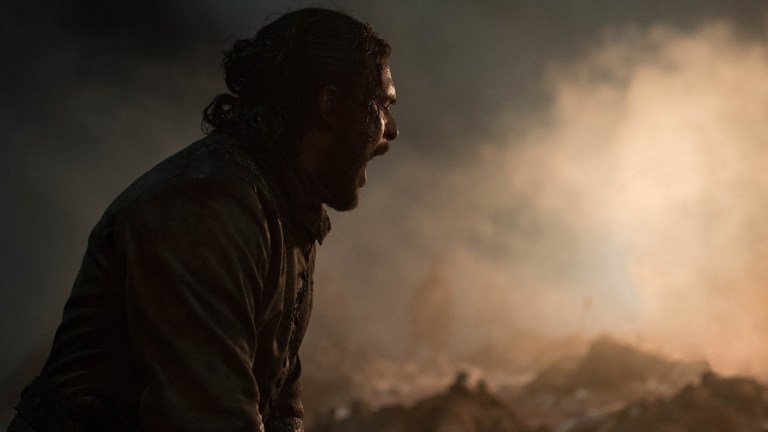The Jon Snow Spinoff Had the Right Idea for a Game of Thrones Sequel
We may never see Game of Thrones' Jon Snow spinoff, but Kit Harington signed on for the right reason.

When the first round of Game of Thrones spinoffs was unveiled, one idea in particular stuck out as a bit odd.
Amid the natural options like a flashback to the ancient Long Night (which became the canceled pilot Bloodmoon) and the depiction of the Dance of the Dragons civil war (which became the successful prequel House of the Dragon), was a Jon Snow series starring Kit Harington.
The fact that Harington was attached meant that this wouldn’t be any kind of prequel exercise (not that it could be since a young Jon doesn’t get up to much before Thrones‘ story begins) but rather a direct continuation of The Bastard of Winterfell’s story North of the Wall. Without any kind of source material from George R.R. Martin to work with, what direction would such a TV series even take? Thanks to a new Kit Harington interview with GQ, we now know that the Jon Snow spinoff at least had the right idea.
Harington confirms that he was as shocked as anyone that he would agree to a Jon Snow spinoff in the first place. The actor confesses that he and the rest of Game of Thrones‘ cast and crew were properly exhausted by the time the eighth and final season rolled around.
“I think if there was any fault with the end of Thrones, is that we were all so fucking tired, we couldn’t have gone on longer,” Harington told GQ. “And so I understand some people thought it was rushed and I might agree with them. But I’m not sure there was any alternative. I look at pictures of me in that final season and I look exhausted. I look spent. I didn’t have another season in me.”
While Harington didn’t have another season of Game of Thrones in him, it turns out that he did have the energy for a Jon Snow spinoff. That’s because he honed in on a kernel of an idea that made sense for the character.
“What I can tell you is it was HBO that came to me and said, ‘Would you consider this?’ My first reaction was no. And then I thought there could be an interesting and important story about the soldier after the war. I felt that there might be something left to say and a story left to tell in a pretty limited way.”
The actor goes on to say that, after a couple years spent in development, he and the production team weren’t able to elaborate on that idea in a way that excited them. Unlike the real Jon Snow, the Jon Snow spinoff is now dead and is likely to stay that way for the foreseeable future. Still, it must be said that the initial concept Harington and company stumbled upon – that of a soldier after the war – was undoubtedly a compelling one.
There are very few times throughout George R.R. Martin’s Game of Thrones canon when the continent of Westeros isn’t at war. In fact, it’s the Seven Kingdoms’ bloodlust (and the existence of magic and inconsistent seasons) that has likely kept Westeros’ culture stagnated and stuck in a perpetual Medieval setting. If the maesters and historians of A Song and Ice and Fire are to be believed, Westeros has about 12,000 years of recorded history. In that time, the only notable technological progression was the transition from iron and bronze to steel.
By taking place in a period of peace under the watchful third eye of King Brandon I (Isaac Hempstead Wright), the Jon Snow spinoff could have focused on how to build a society rather than how to tear one apart. Combine that with the fact that Jon Snow clearly has some trauma to work through, and you’ve got the formula for a fascinating story, if not an action-packed one.
Of course, in the wake of the Game of Thrones phenomenon, HBO likely wasn’t looking for a staid, sober text about nation-building but a continuation of draconic spectacle. It found that spectacle with House of the Dragon, but let’s hope the world of Ice and Fire also finds room for the future one day too.
